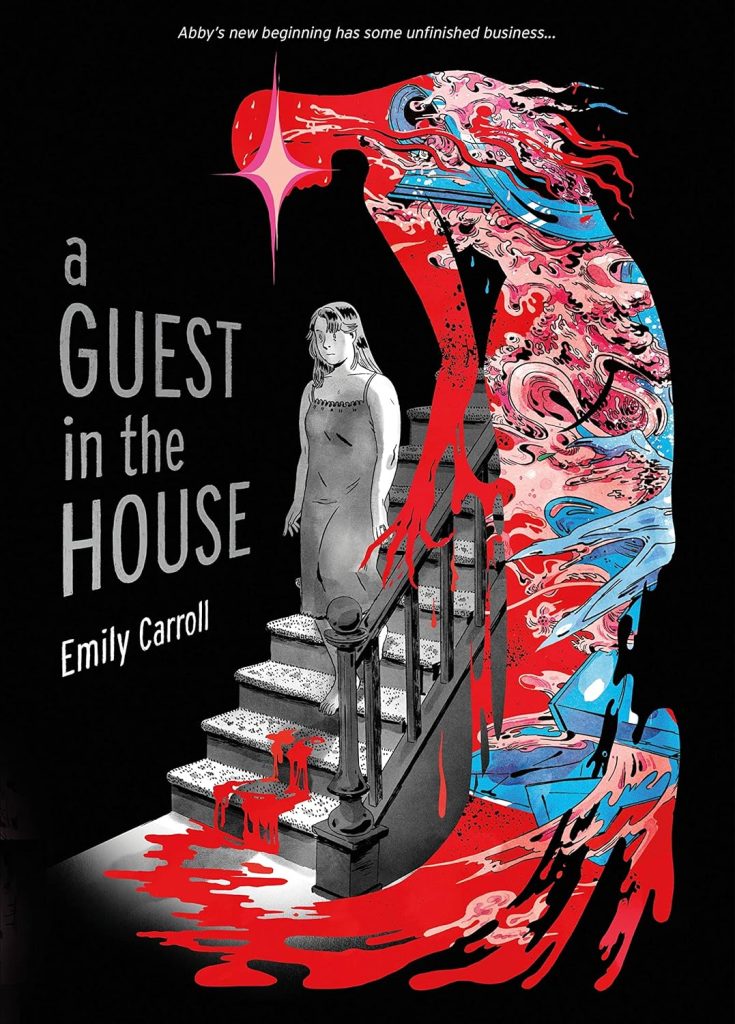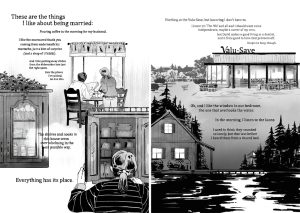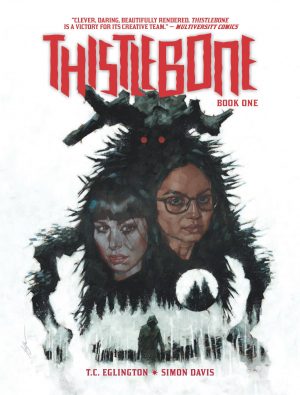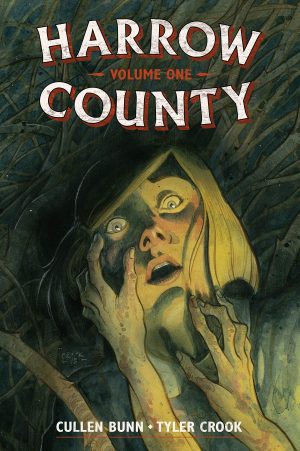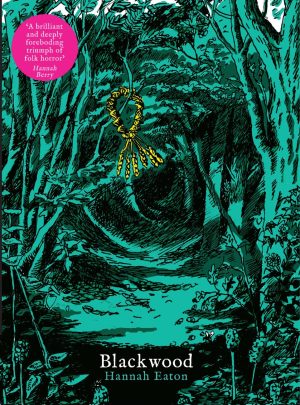Review by Win Wiacek
Emily Carroll picked up Ignatz, Eisner and British Fantasy awards for Through the Woods, an anthology of scary stories, and fright is again on the agenda in A Guest in the House. Sunny skies and enticingly gleaming lake waters don’t always equate with idyllic rests and restorative downtime.
A Guest in the House is Carroll’s first full graphic novel and is best experienced without knowing very much about it. It’s narrated by dowdy, introspective, uninspired Abigail, it plays on the institutionalised uncertainty and self-doubt of women and offers a fantastic, ferocious dreamscape to outline a creepy, uneasy slice of domestic tragedy in what should be an idyllic retreat from care.
Abby lives by a beautiful lake in a sedate town with nice new husband David and Crystal, his daughter by a previous marriage. Abby’s not happy, but she is settled, and if her husband seems a bit harsh or intolerant it’s only because he works so hard and his first wife Sheila died so tragically. The biggest bone of contention between them is his extreme reactions to Crystal getting near the lake.
When not working at the Valu-Save, Abby inhabits a rich fantasy life filled with knights, dragons and princesses, but as summer progresses she becomes increasingly concerned about the real world inconsistencies in David’s stories of vivacious, clever, talented Sheila. Even before one of his work colleagues accidentally reveals how her predecessor really died, Abby starts seeing ghosts and talking to what remains of Sheila.
Whatever you think happens next is probably wrong. Cunning, twisty plotting fuels intense and expressive fantasmagoria blended with powerfully understated, almost documentarian narrative illustration. All concerned – especially the reader – are forced to confront and question everything thus far, and the tale then heads into unexplored country and comprehension.
In so many ways A Guest in the House acts as like an inverted take on Daphne Du Maurier’s Rebecca, with an all-powerful past presence not just imprinted, but actually working on and communicating with an embattled and distraught protagonist. However, even that’s not what’s really going on in this haunting tale of grief, ghosts, quiet desperation, suspicion and identity – submerged or otherwise. In the end it’s all-beguiling moments clouding the big question: is this materialised internal monologue or actual spiritual infestation?
Chilling and unforgettable, this is a summer storm that demands your full attention.
